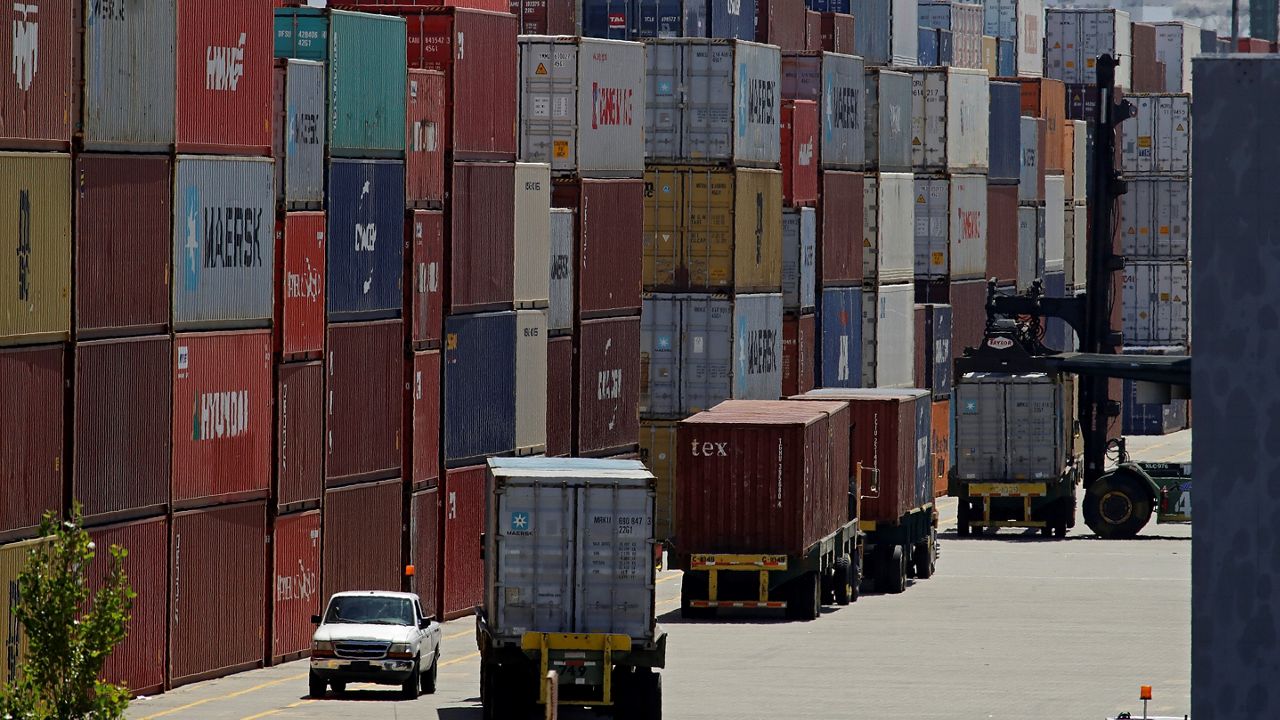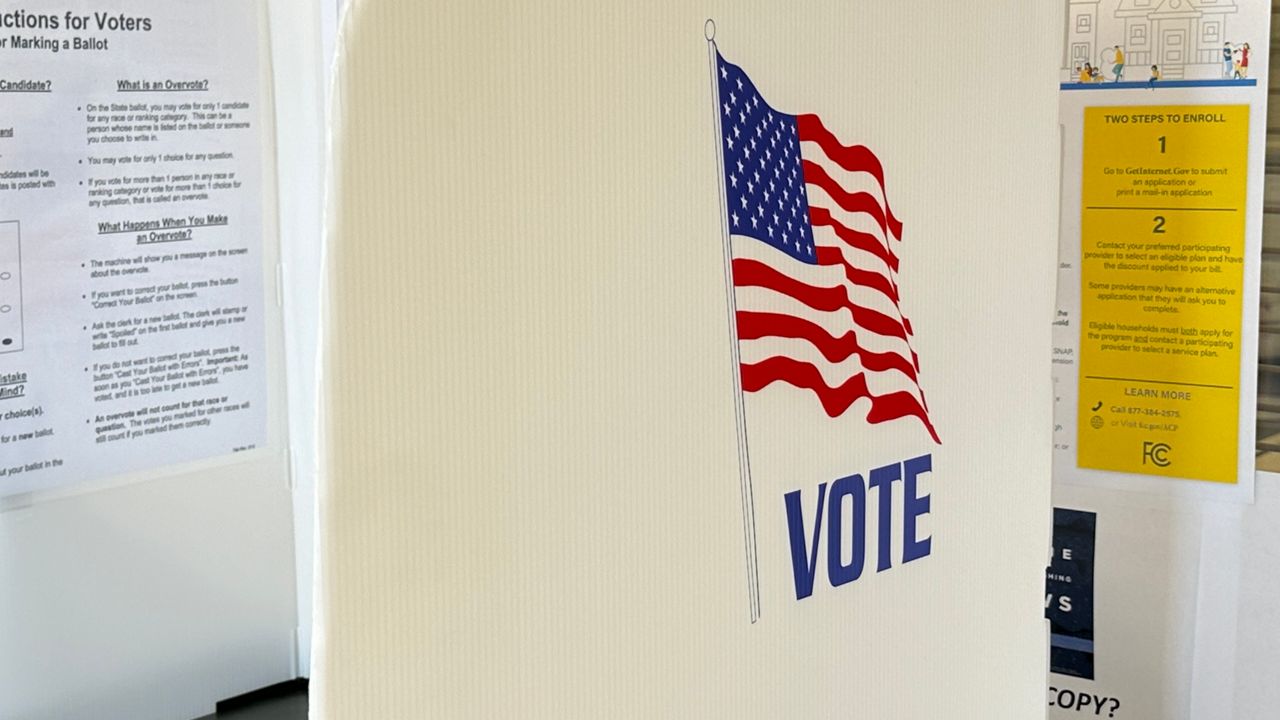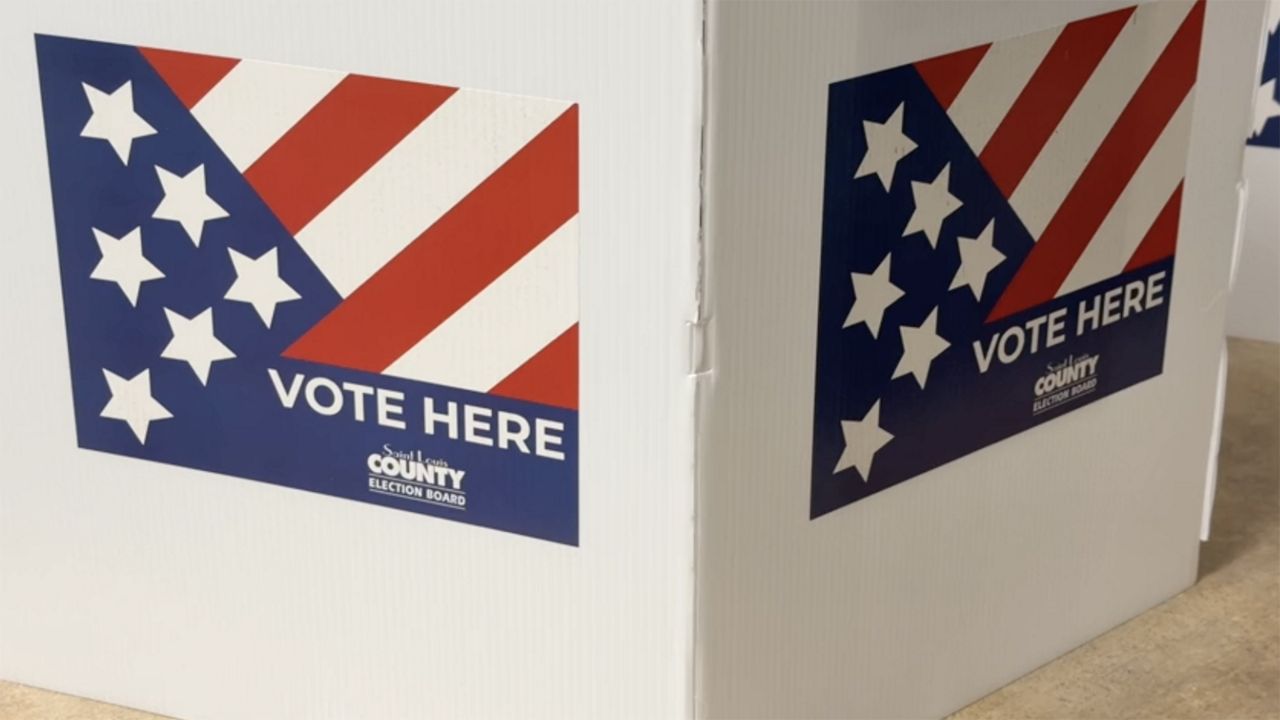ST. LOUIS—Political reaction in the St. Louis region to President Donald Trump’s announcement of new tariffs against nearly all U.S. trading partners has largely fallen along party lines, with Republicans supporting the move with Democrats opposed.
The tariffs hit allies and rivals alike. Trump is placing a 10% baseline tax on trading partners around the globe and is setting heftier levies on major partners with which the U.S. has a trade deficit like China, the European Union and Japan.
While Trump had suggested the tariffs were a negotiating tool to lower the taxes paid on U.S. exports, he described his plan as one that would boost domestic manufacturing and raise federal revenues.
Missouri U.S. Sen. Eric Schmitt said it was time for products that were invented in the U.S. to be made in the U.S.
“The American working class has been insulted by this international economic order that told them their life was going to get a lot better if your jobs went somewhere else, and that’s not true, so we need to be making things in this country again. America’s not some economic zone, it’s our home, it’s our country, so I don’t know why it hasn’t happened before,” Schmitt said of the tariffs.
"The EU keeps out bunches of our products, our livestock claiming all kinds of nonsense, that needs to stop. We need fair access to these markets overseas, we need more markets overseas with more access on better terms and I think the President’s fighting for that,” Hawley said, adding that he’d support higher barriers on trade with China, including a ban on exports.
While Trump has described the tariffs as being “reciprocal," that’s not exactly the case.
The White House says it calculated the size of each country’s trade imbalance on goods with the United States and divided that by how much America imports from that nation.
It then took half that percentage and made it the new tariff rate, which the White House claims in some cases kept the tariffs from being even higher.
Democrats have come out in opposition to the tariffs, warning of the impact on U.S. consumers.
“The President is risking a recession with this national sales tax he calls tariffs—while needlessly alienating our closest allies. When American families see what this does to the price of goods, such as cars, groceries, and gas, it is going to create a negative economic force across this country and cost a lot of American jobs,” said Illinois Sen. Dick Durbin.
Sen. Tammy Duckworth said tariffs should be targeted to protect against threats to the U.S. economy.
“Illinois is the nation’s third largest agricultural exporter, and the consequences of Trump’s chaotic, sweeping tariffs will substantially hurt our economy and be disastrous for our state’s farmers—not only making it more difficult for them to sell their products overseas but also making it harder for us to import essential commodities and foods,” she said in a statement.
The S&P 500 sank 4.8%, more than in major markets across Asia and Europe, for its worst day since the pandemic crashed the economy in 2020. The Dow Jones Industrial Average dropped 1,679 points, or 4%, and the Nasdaq composite tumbled 6%.











